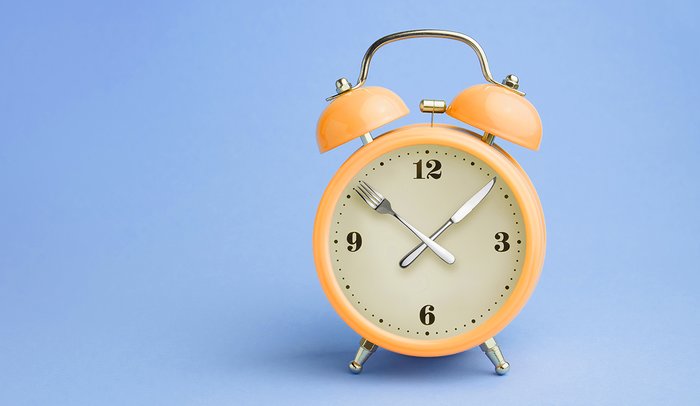Products You May Like
Having a solid workout plan and following it is critical for success in your health and fitness journey, but it can only take you so far. As great as exercise is, it’s not the full story. If you complement your training with the following health hacks, you’ll be well on your way to seeing even better progress and taking your well-being to a whole new level.
Best of all? Most aren’t that hard to do and take only a few minutes out of your day.
Hack 1: Take the Stairs to Live Longer
Can’t hit the gym today? Not to worry. There are other ways to squeeze in activity. Taking the stairs is fast and easy and will only take a few minutes. Most people are still under the assumption that you need to exercise for so many minutes straight for it to count, but that isn’t the case.
Let’s say you work in a multilevel office building. If you can find the time and reasons to walk up 20 flights of stairs over the course of the day day—bathroom breaks, delivering a message to a coworker, and a few flights on your coffee break all add up!—that’s a good amount of activity you’re squeezing in. Almost as much as a full cardio workout.

In a 2019 study, researchers from McMaster University in Ontario noted that exercise “snacks,” as they called them, can help to improve cardiorespiratory fitness and may also positively correlate with longevity and cardiovascular health.[1]
No stairs around? No problem. Any kind of short bout of activity that gets your heart rate up will count toward reaching this goal.
Hack 2: Get Nuts About Nuts for a Healthier Heart
Fats are slowly making a comeback in today’s nutrition space, but are still not well-regarded in many circles for the benefits they provide. While keto lovers eat fat as the main macro in their diet, many people are still a little fearful of what adding fat will do to their waistline. It’s time to get over this hump.
One particular fat-dense food you want to start getting more of is nuts. They are a powerhouse food as they not only contain the right fats—unsaturated fats—but also come packed with protein and fiber.
Nuts are a well-balanced food that make a great snack anytime. The only caveat? They are higher in calories, so make sure you’re paying attention to your portions. Don’t let the calorie count put you off, however. Far too many people disregard nuts entirely because they are worried about gaining weight.
A small serving of nuts amounting to 5-10 grams of fat will help boost satiety at any meal and can help you eat fewer calories a day. Research also notes that nut consumption can be linked to lower risk for heart disease, stroke, and diabetes.[2-4] What’s not to love?
Hack 3: Experiment with Intermittent Fasting to Increase Longevity
Intermittent fasting has been around for a beat now, and more people are catching on to this alternative way of eating. Its reported benefits include the following:
- Improved energy throughout the day
- Easier time managing your body weight
- Improved insulin sensitivity[5]
- Enhanced cognitive focus during the fasting period[6]
- Improved recovery after exercise if you time your food properly with your workouts
- Increased wellbeing late in life[7]

Many people enjoy intermittent fasting because it saves time. If you don’t have to prep so many meals for the day, you’ll save that time and you’ll also save the time you’d spend sitting down to eat.
With today’s busy lifestyles, time is everything. Plus, when you have more calories to consume in a shorter time period, you also have more flexibility with meal choices. For instance, instead of planning a meal containing 300 calories, you may be able to have one that contains 600 calories, which opens doors to a wider variety of foods.
Hack 4: Exercise in the Morning for a Better Day
You may think that some exercise is better than no exercise, as long as you get it done, right? This may not be correct. If you are in the habit of exercising just a few hours before bedtime, you actually may be disrupting your sleep because of it.
Few things will improve your health as much as quality sleep, so don’t let exercise jeopardize that. Ideally, you’ll want to exercise in the morning as often as possible for a few reasons.
To begin with, morning exercisers are more likely to stick with it. Because you are likely routine oriented in the morning, if exercise is part of that routine, you’ll become more consistent. There are fewer things crowding out that workout in the morning than in the evening; for example, socializing with friends or simply fatigue from the day.
Second, exercising in the morning will wake you up for the day ahead. You’ll feel invigorated heading out the door to work, and chances are, you’ll be more productive at work, as well.
Finally, as many people find that exercise helps to regulate their appetite, you may learn that exercising first thing in the day can help you keep your calories in check.
Hack 5: Give Your Brain a Break for Peak Performance
In a new study published in the journal Cell, researchers at the University of California, San Francisco, discovered that rats learned best if they were subjected to a maze they didn’t know how to navigate and then given time to rest.[8] During the rest time, their minds would replay the maze, which augmented the learning process.

If, however, the rats were immediately presented with a threat or challenge that kept their brain occupied after they ran the maze, they didn’t learn as well and didn’t get through the maze as quickly the second time as they did after they got a rest.
The moral of the story? If you’re trying to learn something new, work on it and then rest. It turns out the brain is a lot like muscle in this regard. It needs that recovery time to rebuild and repair.
Keep these five health hacks in mind and try to work them into your lifestyle. If you can adopt even a couple of them to start, you’ll be on your way to superior health.
References
- Jenkins, M. E., et al. (2019). Do stair climbing exercise “snacks” improve cardiorespiratory fitness. Applied Physiology, Nutrition and Metabolism, 44(6), 681-684.
- Kris-Etherton, Penny M., et al. (2001). The effects of nuts on coronary heart disease risk. Nutrition Reviews, 59(4), 103-111.
- Afshin, Ashkan, et al. (2014). Consumption of nuts and legumes and risk of incident ischemic heart disease, stroke, and diabetes: a systematic review and meta-analysis. The American Journal of Clinical Nutrition, 100(1), 278-288.
- Kendall, Cyril W. C., et al. (2010). Nuts, metabolic syndrome and diabetes. British Journal of Nutrition, 104(4), 465-473.
- Anson, R. Michael, et al. (2003). Intermittent fasting dissociates beneficial effects of dietary restriction on glucose metabolism and neuronal resistance to injury from calorie intake. Proceedings of the National Academy of Sciences, 100(10), 6216-6220.
- Li, Liao Liao, Zhi, Wang, & Zhiyi, Zuo (2013). Chronic intermittent fasting improves cognitive functions and brain structures in mice. PloS one, 8(6).
- Carlson, Anton J., & Hoelzel, Frederick (1946). Apparent prolongation of the life span of rats by intermittent fasting: one figure. The Journal of Nutrition, 31(3), 363-375.
- Kay, Kenneth, et al. (2020). Constant sub-second cycling between representations of possible futures in the hippocampus. Cell, 180(3), 552-567.e25.
